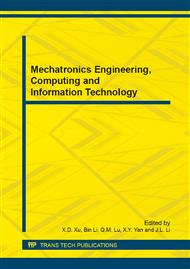p.6266
p.6270
p.6275
p.6281
p.6286
p.6290
p.6294
p.6298
p.6302
Learning to Rank for Review Rating Prediction
Abstract:
The Internet has experienced profound changes. Large amount of user-generated-contents provide valuable information to the public. Customers usually express their opinion in online shopping. After they finish the reviews, they give an overall rating to the product or service. In this paper, we focus on the review rating prediction problem. Previous studies usually regard this problem as a regression problem. We take a new machine learning method to solve the problem. Learning to rank method has been exploited to tackle the prediction. After feature selection, the maximum entropy classifier has been employed to solve the multi-classification problem. The real life dataset has been crawled to verify the proposed method. Empirical studies demonstrate the proposed method outperform the baseline methods.
Info:
Periodical:
Pages:
6286-6289
Citation:
Online since:
May 2014
Authors:
Keywords:
Price:
Сopyright:
© 2014 Trans Tech Publications Ltd. All Rights Reserved
Share:
Citation:


